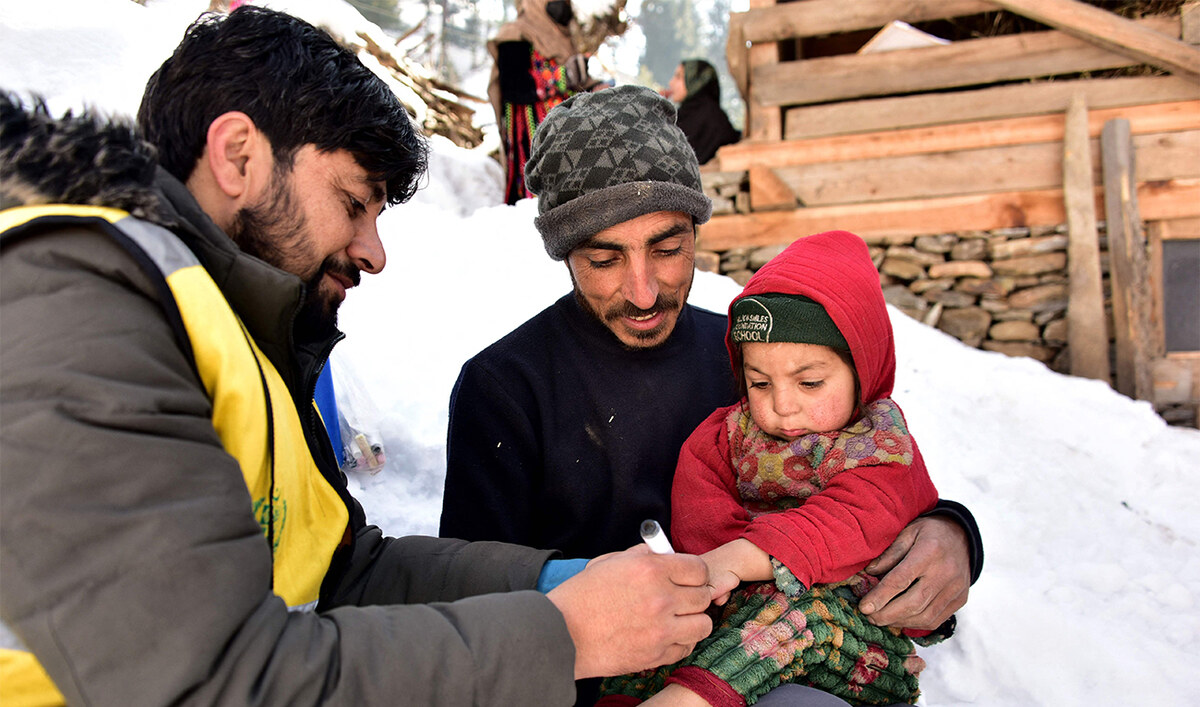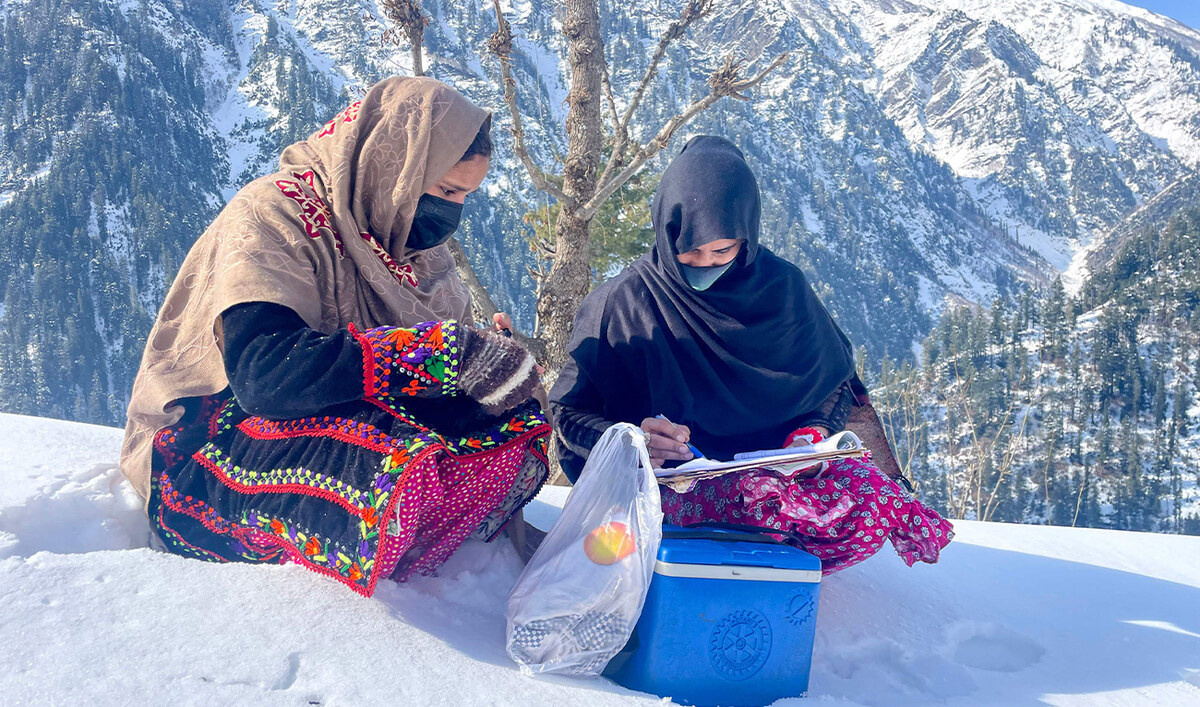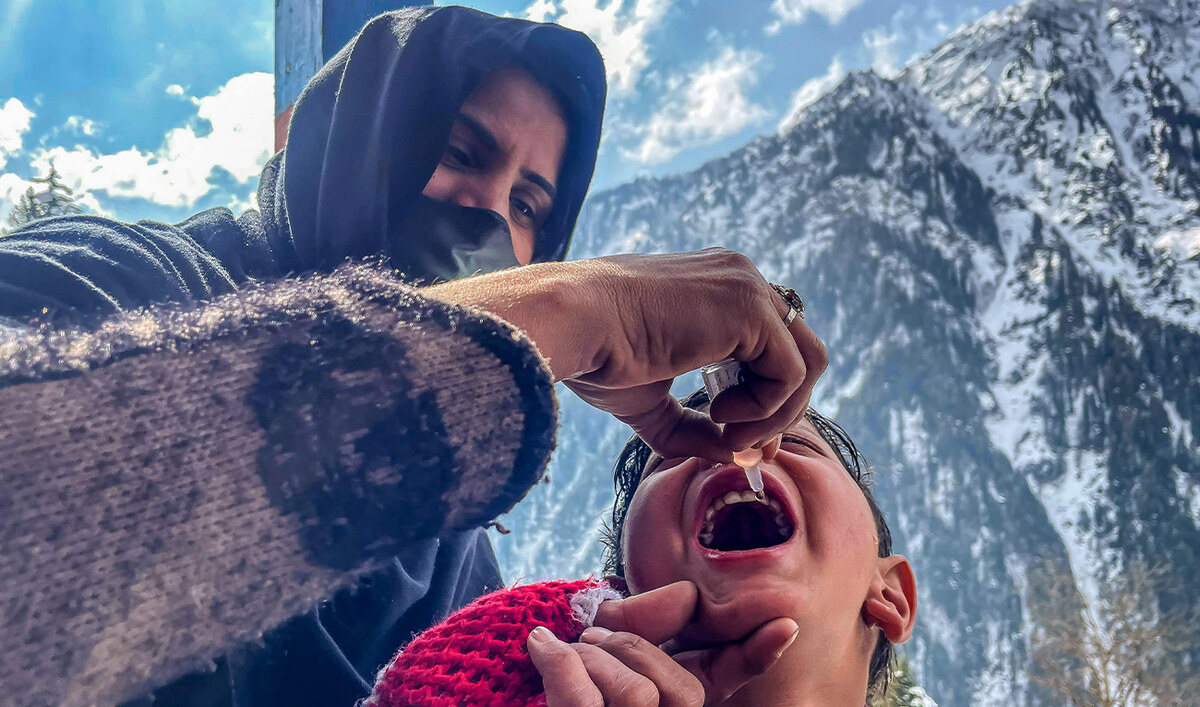ISLAMABAD: The Pakistan Tehreek-e-Insaf (PTI) party said on Thursday it would challenge a lower court’s verdicts dismissing three bail pleas by its founder and former Prime Minister Imran Khan in cases involving riots last year and declaring there was “reasonable” evidence of his involvement.
Alleged supporters of the PTI party attacked and damaged government and military installations on May 9, 2023, after Khan’s brief arrest that day in a land graft case. The attacks took place a little over a year after Khan fell out with Pakistan’s powerful military, blaming the institution for colluding with his rivals to oust him from office in a parliamentary vote in April 2022. The military and the political parties Khan blames reject the allegations.
Hundreds of PTI workers and leaders were arrested following the May 9 riots in a state-led crackdown on charges of involvement in the riots, and some continue to remain behind bars as they await trial. The military has also initiated army court trials of at least 103 people accused of involvement in the violence. Many close Khan aides have since deserted him, due to what is widely believed to be pressure from the army, which denies interfering in politics.
Khan and other key leaders of his party are widely believed to have masterminded the violence but the ex-PM has distanced himself from the riots and says they have been used as a ruse by political rivals and the military to crack down on the party, which is arguably the most popular in Pakistan. They deny the charge.
“Party will most definitely challenge the verdict,” the PTI said on Thursday in a text message to reporters about the verdict by an Anti-Terrorism Court (ATC) in Lahore dismissing Khan’s bail petitions in three May 9 cases. “The judgment contained no evidence of Imran Khan ordering the May 9 violence.”
The ATC had on Saturday reserved its verdict on Khan‘s bail petitions in three cases concerning attacks on Lahore’s Jinnah House, the residence of the top military commander in the city, as well as Askari Tower and Shadman police station.
The party said ATC Judge Khalid Arshad dismissed the PTI founder’s bail pleas by “drawing interferences and assumptions.” While ATCs in other parts of the country, including Rawalpindi and Sargodha, had dismissed May 9-related cases against Khan, the Lahore ATC had declared him a “main accused,” the party said, adding that this was another “politically motivated case” being used to prolong Khan’s “illegal incarceration.”
Khan has been imprisoned since August last year after he was convicted in at least four separate cases, with two of the judgments suspended and Khan acquitted in a third case.
ATC VERDICT
Pakistan’s anti-corruption agency arrested Khan from the premises of the Islamabad High Court on May 9 last year, unleashing nationwide protests by his followers. That case involves accusations Khan and his wife received, when he was still prime minister, land worth up to 7 billion rupees ($24.7 million) from a property developer who had been charged in Britain with money laundering. The government says British authorities had returned 190 million pounds ($240 million) to Pakistan in connection with money laundering, but Khan had returned the money to the developer instead of keeping it in the national exchequer.
Khan’s PTI party called on supporters to “shut down Pakistan” over his May 9 arrest, writing on Twitter: “It’s your time, people of Pakistan. Khan has always stood for you, now its time to stand for him.”
Hundreds of Khan supporters blocked roads in cities and major highways across the country, as police poured into the streets, public gatherings were banned and telecommunications networks suspended. Previous attempts to arrest Khan from his Lahore home had already resulted in heavy clashes between his supporters and law enforcement personnel.
In its order dated July 9, the ATC court said Khan had instructed the party’s top leadership to stage the protests and damage military installations in the event of his arrest. It also quoted a video message by Khan right before his arrest in which he said the country would descend into a state “worse” than Sri Lanka if he was arrested.
“Two prosecution witnesses participated in the meeting of hatching of criminal conspiracy in Zaman Park [Khan’s Lahore home] on May 7 and May 8 last year by the petitioner [Khan] and other top leadership of PTI wherein the petitioner himself instructed them regarding his apprehension of arrest and the reaction thereon of launching or protest and damage of military installations,” the court order said.
The order highlighted that another meeting was held by top leaders of the PTI at the Rose Hotel on May 1 last year “wherein it was decided to block Marred and Kachahri Chowks to resist the movement of higher army officials.”
“You all [PTI leaders] in the leadership of Dr. Yasmin Rashid would gather PTI workers and attack military installations, government properties, and armed institutions for his release,” the court order said, quoting Khan as giving his party its plan of action in the event of his arrest.
“The petitioner like other accused is responsible for the commission of heinous offenses against the State being member of the mob conjointly having common object so this [bail] petition deserves dismissal …
“An extraordinary concession of pre-arrest bail is meant for an innocent person and not the petitioner (Khan) who hatched, and materialized the alleged criminal conspiracy [...] to wage war against the state to topple over the government,” the order read.
It concluded that “reasonable grounds” existed to connect the petitioner with the alleged offenses, citing it as the reason to dismiss Khan’s pre-arrest bail requests and withdraw his interim bail.




















